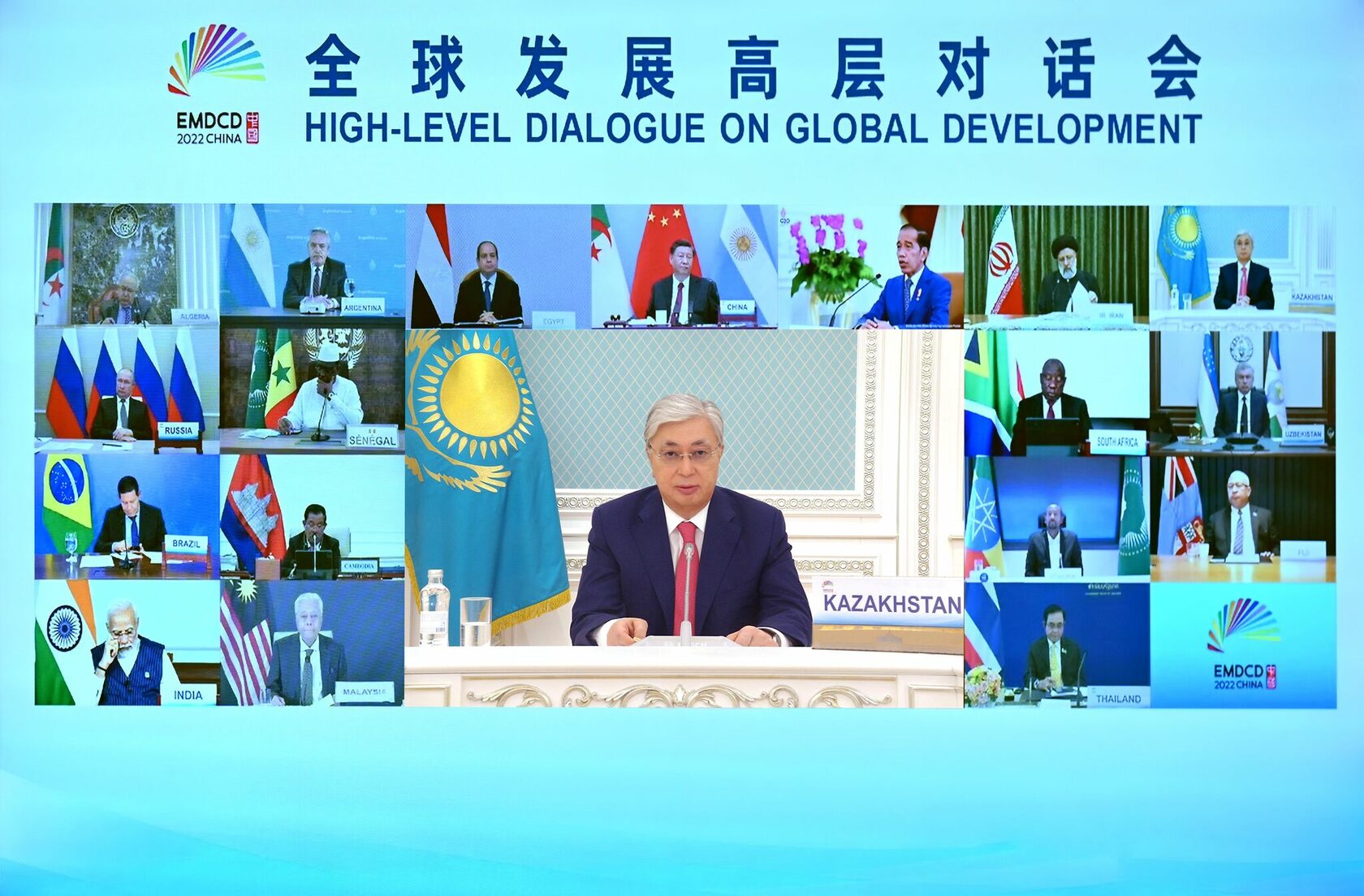
On June 23-24, 2022, the XIV Summit of the informal interstate association BRICS+, chaired by Chinese leader Xi Jinping, was held in Beijing via videoconference. The "Year of China" in BRICS is held under the motto "To build high-quality partnerships, jointly create a new era of global development".
The agenda of the summit included issues of strengthening the global partnership for the implementation of the sustainable development agenda for the period up to 2030. Particular attention is paid to the expansion of practical cooperation, primarily the adoption of coordinated measures to eliminate trade barriers, the creation of new production and logistics chains, attracting investment in cooperation and infrastructure projects, as well as technology transfer and innovation, deepening cooperation in the field of artificial intelligence, digitalization, biotechnology, vaccine development.
In addition to the BRICS Five, 13 other countries took part in the event: Algeria, Argentina, Egypt, Indonesia, Iran, Kazakhstan, Cambodia, Malaysia, Senegal, Thailand, Uzbekistan, Fiji and Ethiopia.
This suggests that BRICS is expanding its geography, and its activities are increasingly attracting the attention of states in various regions of the world. Many countries are already pinning their hopes for the future on a new center of power offering the world fairer rules for partnership.
It is no coincidence that the expert community and social networks are actively discussing this event. What awaits our planet? Peace or war, development or recession, openness or isolation, cooperation or confrontation?
The modern world is undergoing a profound transformation, accompanied by a number of alarming trends – international tensions are increasing and signs of a systemic economic crisis are emerging.
The events around Ukraine over the past years prove that the desire to ensure one's own security at the expense of the security of others by expanding military alliances leads only to a global split and puts the world on the verge of a full-scale war.
Today, some countries politicize economic issues and issues of values, belittling the importance of other civilizations and their right to freely choose the path of development. Unilateral sanctions have already caused enormous damage to the global economy, and, most likely, it will grow, because so far there are no trends towards normalization of the situation on world markets.
Under these conditions, the BRICS member countries have to develop their economies and conduct business on a new basis.
Monitoring of the speeches of the heads of State and Government of the countries participating in the Summit showed that all the speakers have a common goal - to promote mutual trade and investment, transfer of advanced technologies and knowledge, development of cooperative ties and transport and communication interconnectedness, strengthening constructive dialogue in the field of security.
Chinese leader Xi Jinping called on countries to fight unilateral sanctions, and also appealed to the international community to abandon the cold War mentality.
President of the Republic of Kazakhstan Kassym-Jomart Tokayev focused on the importance of regional cooperation within the framework of the implementation of BRICS+, the "One Belt, One Road" initiative and the Greater Eurasian Partnership, opening a new era of growth and interaction. Kazakhstan is determined to harmonize its national interests with global ones.
President of Uzbekistan Shavkat Mirziyoyev called for strengthening transport and communication interconnectedness and inclusion of the region in the transcontinental routes "North-South" and "West-East", and also proposed to develop mechanisms for practical interaction between BRICS and SCO.
Iranian leader Ibrahim Raisi noted that the country is ready to provide its capabilities to the BRICS countries to enter new markets and meet energy needs.
Russian President Vladimir Putin stressed the strategic importance of Russia for different parts of the world and the limited desire of some key countries to join the Western trade boycott.
In addition, a number of key issues were considered during the summit:
development of a unifying, positive course towards the formation of a truly multipolar system of interstate relations based on universally recognized norms of international law and the key principles of the UN Charter;
solutions to counteract the food crisis;
development of an international reserve currency based on BRICS currencies. The issue of creating alternatives to SWIFT is also being resolved, which will free the banking system from US control.;
reform of the UN Security Council and the WTO;
ensuring universal access to cheap, reliable, sustainable and modern energy sources;
strengthening the arms control system and preserving its integrity in the interests of global stability;
expanding interaction with external players in the BRICS+ or BRICS-outreach format.
In summary, it should be noted that most experts come to the conclusion that BRICS+ is becoming a new pole of development, which will continue to attract more and more countries and international organizations, defining the path of sovereign partnership and a new era of development.
The final document of the meeting is full of specifics based on the implementation of existing BRICS programs and mechanisms in agriculture, new technologies, new types of energy, and biotechnologies.
R.Tairov